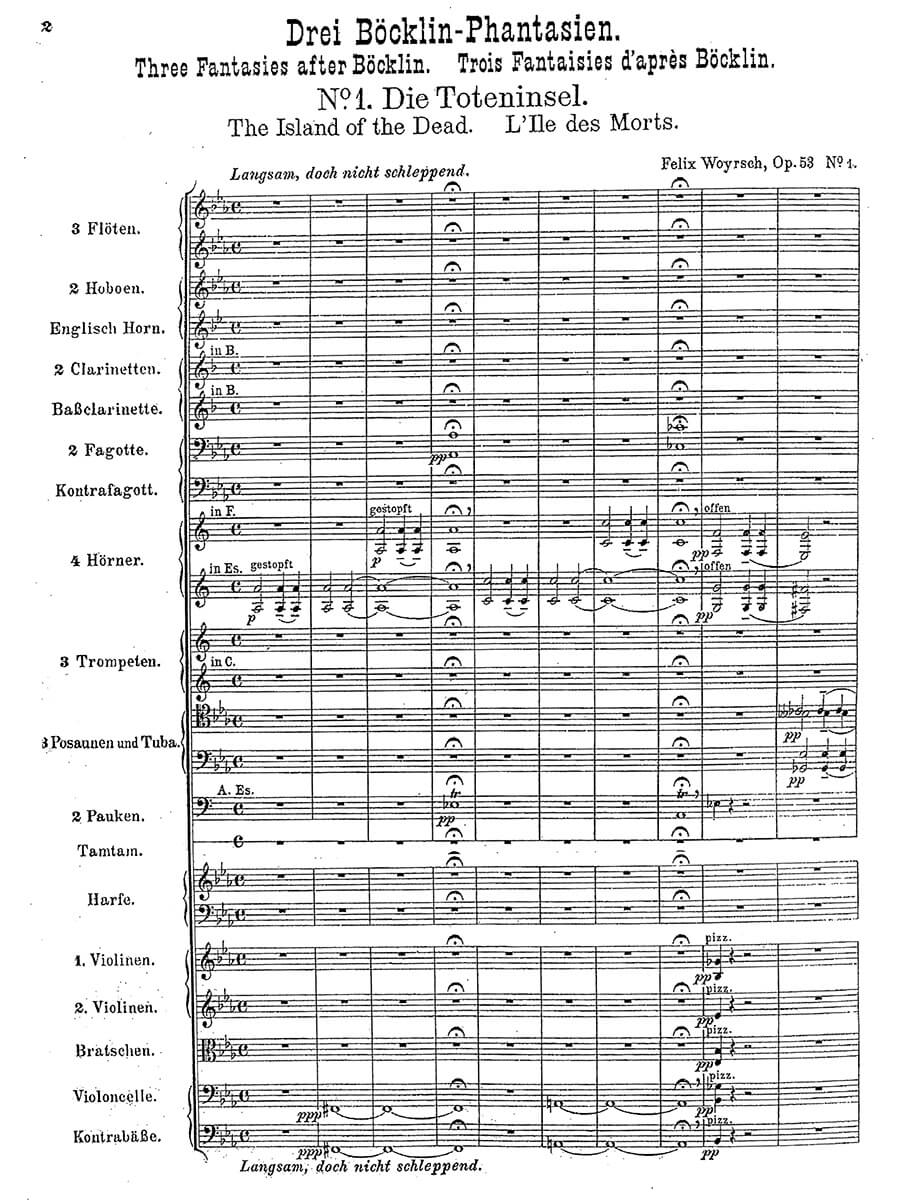Drei Böcklin-Phantasien Op. 53 for orchestra
Woyrsch, Felix
28,00 €
Preface
Felix Woyrsch – Drei Böcklin-Phantasien Op. 53
(b. Troppau [Opava], Silesia, 8 October 1860 – d. Hamburg-Altona, 20 March 1944)
Die Toteninsel
Der Eremit
Im Spiel der Wellen
Preface
One name inseparably linked with the orchestral composer Felix Woyrsch is Karl Panzner (1866–1923), a conductor active first in Bremen and later in Düsseldorf. Panzner had already taken up the cause of Woyrsch’s orchestral music before conducting the première of Symphony No. 2 in C major, op. 60, in the Düsseldorf Tonhalle. Nothing is known about the origins of this work except that it was written roughly between 1912 and
1913. In the latter year Panzner wrote to the composer: “I must take advantage of these lines to express my admiration and joy at the success of this magnificent work. The entire piece is cut from whole cloth! Highly interesting from first note to last. What rhythms and harmonies in the first movement, how delightful the second with its deft, intimate allure; what a beautiful and noble flow of cantilena in the Adagio; what riveting power, what structure in the finale!” Indeed, compared to the rather dank First Symphony, the Second is a formally poised, sunlit work that reveals not only an unmistakable touch of humor but a sizable portion of rigor, sometimes fractured with irony.
Woyrsch hailed from a venerable family from southern Bohemia. However, his father’s early death made it impossible for the boy to enjoy a solid, financially secure education and musical training. After receiving some rather amateurish and irregular violin and piano lessons, young Woyrsch was discovered by the choral conductor Heinrich Chevallier (1848–1908) at a fun fair, where the boy appeared with several other artists as a Kunstpfeifer (whistler). Chevallier promptly agreed to give him lessons in theory and piano free of charge. In the years that followed, Woyrsch headed various choruses until 1895, when he became the music director of the Altona Singakademie, thereby attaining more than local fame. He also served as the organist at the Friedenskirche and later at St. John’s. In 1903 he established a series of popular symphony concerts and founded the orchestra of the Hamburg Music Lovers’ Association. By 1901 he had received a professorship, and in 1914 the city of Hamburg honored his achievements by appointing him the first municipal music director in the history of the city of Altona. In 1917 he was inducted into the Prussian Academy of Arts in Berlin. With the accession of the Nazis, however, he was dismissed from his position as Altona’s music director and retreated into “inner emigration.” …
Full preface / Komplettes Vorwort > HERE
Score Data
| Edition | Repertoire Explorer |
|---|---|
| Genre | Orchestra |
| Size | 210 x 297 mm |
| Printing | Reprint |
| Pages | 92 |
